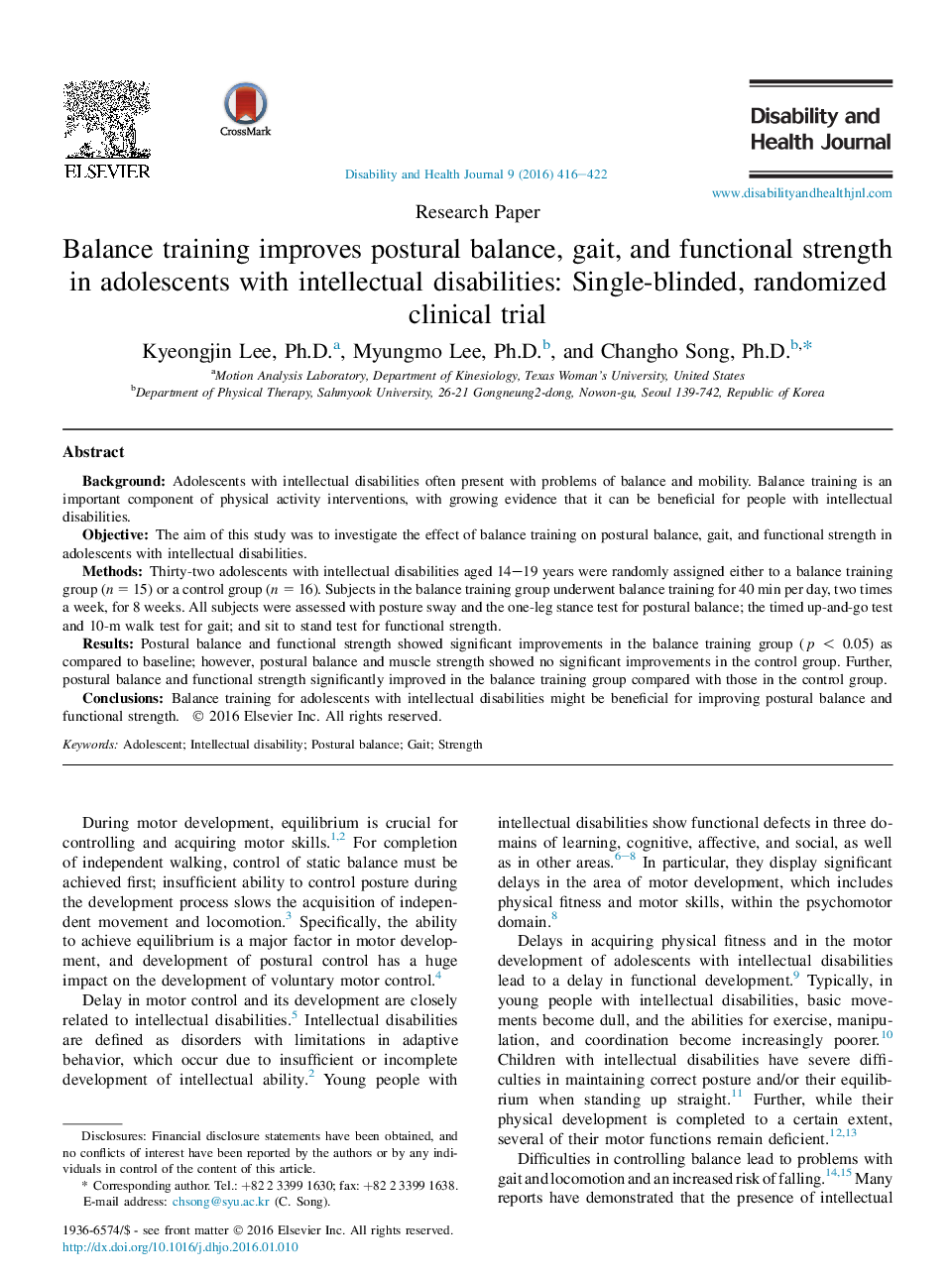| Article ID | Journal | Published Year | Pages | File Type |
|---|---|---|---|---|
| 4197125 | Disability and Health Journal | 2016 | 7 Pages |
BackgroundAdolescents with intellectual disabilities often present with problems of balance and mobility. Balance training is an important component of physical activity interventions, with growing evidence that it can be beneficial for people with intellectual disabilities.ObjectiveThe aim of this study was to investigate the effect of balance training on postural balance, gait, and functional strength in adolescents with intellectual disabilities.MethodsThirty-two adolescents with intellectual disabilities aged 14–19 years were randomly assigned either to a balance training group (n = 15) or a control group (n = 16). Subjects in the balance training group underwent balance training for 40 min per day, two times a week, for 8 weeks. All subjects were assessed with posture sway and the one-leg stance test for postural balance; the timed up-and-go test and 10-m walk test for gait; and sit to stand test for functional strength.ResultsPostural balance and functional strength showed significant improvements in the balance training group (p < 0.05) as compared to baseline; however, postural balance and muscle strength showed no significant improvements in the control group. Further, postural balance and functional strength significantly improved in the balance training group compared with those in the control group.ConclusionsBalance training for adolescents with intellectual disabilities might be beneficial for improving postural balance and functional strength.
